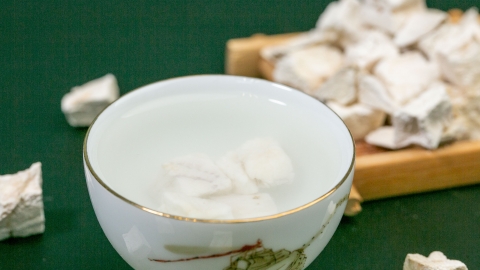Can mulberry leaves and kudzu roots be steeped in water for drinking?
Generally speaking, mulberry leaves and kudzu roots can be steeped in water for consumption, but it's important to drink them in moderation. The detailed analysis is as follows:

Mulberry leaves are cold in nature and act on the lung and liver meridians, possessing functions such as dispersing wind-heat, clearing lung heat, relieving dryness, and improving vision. Kudzu roots are cool in nature and act on the spleen and stomach meridians, capable of relieving muscle fever, promoting body fluid production to relieve thirst, elevating yang energy, and stopping diarrhea. These two herbs do not have conflicting properties and can work synergistically when combined. They are suitable for treating symptoms such as wind-heat common cold, sore throat, red and painful eyes, etc. The flavonoids and polysaccharides in mulberry leaves can lower blood sugar, blood lipids, and blood pressure, while the flavonoids in kudzu roots also help dilate blood vessels and regulate blood pressure. Combined use of these two herbs may provide certain adjunctive therapeutic effects for patients with chronic diseases such as hypertension, hyperlipidemia, and diabetes.
Both mulberry leaves and kudzu roots have heat-clearing effects. When used together, they can enhance the relief of symptoms such as heat-toxin sores, lung heat cough, etc. Mulberry leaves can clear lung heat and relieve lung dryness, while kudzu roots can moisten the lungs and relieve cough. When combined, they can improve symptoms such as coughing, minimal phlegm, and dry throat caused by lung heat or dry heat injuring the lungs. However, it's important to consume them in moderation, as long-term excessive consumption may increase internal coldness and damage the spleen and stomach.
Mulberry leaves and kudzu roots may interact with other medications, affecting drug efficacy or increasing side effects. Individuals currently taking other medications should consult a doctor or pharmacist. During consumption, one should regularly monitor their condition. If any adverse reactions occur, such as diarrhea, stomach pain, or hypoglycemic symptoms, usage should be stopped immediately and medical attention sought.







